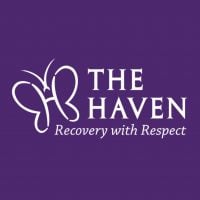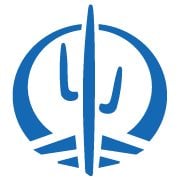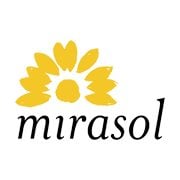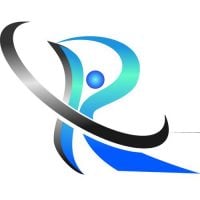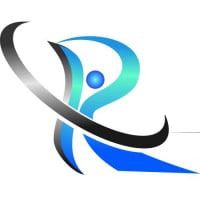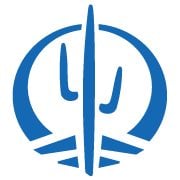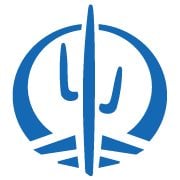The Haven - North Campbell Avenue
Drug Rehab Center in Tucson, Arizona
The Haven - North Campbell Avenue is an addiction treatment facility in Tucson that offers specialized care for alcoholism, substance abuse, opioid addiction, and dual diagnosis through outpatient, dual-diagnosis, and intensive outpatient levels of care, and accepts private health insurance to provide comprehensive treatment plans.
About This Arizona Facility
The Haven - North Campbell Avenue is an alcoholism, substance abuse, opioid addiction, and dual diagnosis treatment facility located in Tucson, Arizona. This facility is accredited by NAATP, which ensures that it meets rigorous standards of care for addiction treatment. With a capacity to accommodate 40 individuals, The Haven - North Campbell Avenue offers outpatient, dual-diagnosis, and intensive outpatient levels of care. Their focus is on providing comprehensive treatment for those suffering from alcoholism, substance abuse, opioid addiction, and dual diagnosis.
At The Haven - North Campbell Avenue, individuals struggling with addiction can access a range of services to aid in their recovery. The facility offers outpatient programs that allow individuals to receive treatment while still living at home, as well as dual-diagnosis programs designed for individuals who have both a substance use disorder and a mental health condition. Additionally, they provide intensive outpatient programs that offer a higher level of care and support for those requiring a more structured treatment environment. These services aim to address the specific needs of each individual and support them in their journey towards lasting recovery.
Genders
Ages
Modality
Additional
Accreditations
NAATP
Conditions and Issues Treated
Substance Abuse Treatment is important when getting sober, as it helps addicts learn the skills they need to live a clean life. There are many different kinds of recovery treatment, including medication-assisted therapy, behavioral therapeutic approaches and self-help groups, as well as counseling.
Opioid abuse has become a national epidemic in the last decade. The US has one of the world’s highest rates of opioid use and abuse, as well as opioid-related deaths. Opioids are classified as Schedule II-IV controlled substances in the US due to their high potential for abuse.
Oxycodone, hydrocodone, methadone, and fentanyl are the most common Opioids and are commonly prescribed to treat pain. Tolerance to opioids develops over time, making life difficult, if not impossible, without them. Opioid users often obtain the drugs illegally. They can be drug dealers, friends, or family members who do not have valid prescriptions.
The desire for a more intense high than prescription opioids can quickly lead to heroin use. Heroin users are more prone to illness and death due to the high risk of overdose.
Many opioid addicts who seek treatment believe that the only way to overcome their addiction is through medical detox and long-term drug addiction rehab. To help patients wean off their addiction and reduce the risk of overdose, medication-assisted therapy (MAT) involves prescribing a replacement opioid. Doctors use MAT in conjunction with other anti-craving medications to help patients maintain recovery. Due to the high risk of relapse, MAT is often combined with individual and group counseling and social support programs.
When addiction and psychiatric issues co-occur, the addict’s recovery is more successful when both conditions are treated. A dual diagnosis refers to a condition in which the patient is diagnosed with two health issues: addiction and bipolar disorder. The most common therapies are psychotherapy, behavioral therapy, spiritual counseling, 12-step programs, and medication management.
Levels of Care Offered at The Haven - North Campbell Avenue
This center offers a variety of custom treatment tailored to individual recovery. Currently available are Dual-Diagnosis, Intensive Outpatient, Outpatient, with additional therapies available as listed below.
Intensive outpatient treatment is a form of addiction care that allows patients to continue living at home while undergoing treatment. This type of care is appropriate for patients who have been treated in residential treatment programs. Intensive outpatient programs include regular visits to the facility providing therapy, and patients gradually return to their routine life. IOP benefits most when patients have a supportive family member or friend to help them recover.
The first step to getting into an intensive outpatient program is to attend a detoxification facility. Detoxification facilities are designed to remove substances from the body safely. The patient will attend sessions designed to help them understand their addiction and its impact on their lives. While in an intensive outpatient program, therapy sessions are scheduled three to five times per week, with the patient attending no more than two sessions in one day.
An outpatient treatment program is set up to help with alcohol or drug addiction or a co-occurring disorder. The patient must attend the facility for their therapy and other programs but can return home each night.
The frequency of mandatory attendance decreases after much of The Haven - North Campbell Avenue‘s program is complete.
Outpatient treatment is a recovery approach that allows recovering addicts to live at home while getting rehab for addiction
An outpatient can include day treatments which include attending group sessions one hour per week. A person living in an outpatient environment may be allowed the opportunity to work full time if they choose to and continue studies without interruption from drugs/alcohol.
Outpatient treatment is an option for people who want to maintain their careers and families. Outpatients live at home but attend treatment such as individual counseling, group counseling, or twelve-step meetings during the day.
Therapies & Programs
At The Haven - North Campbell Avenue , to learn from past mistakes and improve one’s situation, the recovering person meets individually with a therapist. The counselor or therapist will address addiction causes, triggers, mental issues, dual diagnosis, and aftercare plans during this time. This is a very intense and challenging process. Some clients find it easier to open up to someone other than family or friends who understand their struggles with addiction.
Family therapy is a crucial part of drug treatment and getting sober. It is one of the most effective ways to help addicts stay on the path to long-term sobriety. An addict’s family can play a vital part in helping them to avoid relapse. They can spot the warning signs and help them get back on track.
In group therapy, recovering addicts meet with a therapist and other people in recovery. Some groups are closed, meaning only people who share the same addiction or problem can attend. Others are open to anyone who wants to stop using drugs or drinking alcohol. Group therapy sessions typically focus on one topic each week or month so that recovering addicts can discuss issues they face daily.
Trauma therapy allows people to face and learn from past traumas.
Many people suffer childhood traumas that lead to adult addiction. During treatment at The Haven - North Campbell Avenue [/type], you can move forward in your recovery and reclaim your sober future! Trauma is a common cause of psychological disorders like Addiction Disorder. It’s common in Addictive Disorders patients because traumatized people have strong emotions or thoughts that lead to addictive behaviors.
Payment Options Accepted
For specific insurance or payment methods please contact us.
Is your insurance accepted?
Ask an expert, call (888) 674-0062
Additional Details
Specifics, location, and helpful extra information.
Tucson, Arizona 85719 Phone Number(520) 623-4590 Meta DetailsUpdated November 25, 2023
Staff Verified
Patient Reviews
There are no reviews yet. Be the first one to write one.
Tucson, Arizona Addiction Information
Arizona has some of the highest rates of prescription drug abuse in the United States. Methamphetamines, heroin and morphine are among the most commonly abused substances. Prescription pain relievers were prescribed to 348 million people in 2012, enough to medicate every adult in Arizona for 2 full weeks. The number of people with substance use disorders in Arizona has remained relatively constant over the past few years.
In Tucson, Arizona, drug addiction is a serious issue. In fact, according to recent statistics, there are over 15,000 people in the city who are addicted to drugs. This accounts for about 5% of the population. Tucson's most commonly abused drugs include heroin, methamphetamine, and cocaine. In Tucson, Arizona, the types of treatment available include inpatient rehabilitation, outpatient rehabilitation, and 12-step programs.
Treatment in Nearby Cities
- Benson, AZ (42.9 mi.)
- Prescott, AZ (180.9 mi.)
- Queen Creek, AZ (80.3 mi.)
- Ajo, AZ (112.3 mi.)
- Prescott Valley, AZ (181.1 mi.)
Centers near The Haven - North Campbell Avenue
The facility name, logo and brand are the property and registered trademarks of The Haven - North Campbell Avenue, and are being used for identification and informational purposes only. Use of these names, logos and brands shall not imply endorsement. RehabNow.org is not affiliated with or sponsored by The Haven - North Campbell Avenue.

